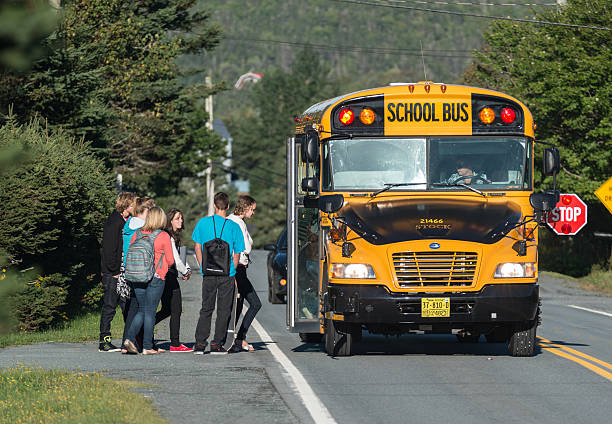Why Propane Buses Are the Smart Choice for Colorado Schools?

Adapted from an article in The Denver Gazette by Dan Binning, Executive Director of the Colorado Propane Gas Association, and Tucker Perkins, President and CEO of the Propane Education & Research Council (PERC).
Across the United States, the push to remove diesel school buses from the roads and replace them with cleaner alternatives is gaining momentum. Colorado is no exception, with plans to allocate $24 million in state and federal funds to introduce 67 electric buses across 12 school districts. However, while electric buses garner attention, a more immediate and cost-effective solution deserves consideration: propane buses.
Propane buses offer several compelling advantages that can benefit Colorado’s schools, children, communities, and the environment. Environmental justice, ensuring clean, affordable, and reliable energy and air quality for all communities, is at the heart of this choice.
Firstly, think back to the diesel school buses of your youth. What comes to mind? Likely, it’s the fumes and noise. Unfortunately, the situation hasn’t changed much. Conversely, propane buses eliminate the black smoke associated with diesel emissions and significantly reduce harmful pollutants like nitrogen oxides and carbon dioxide, known triggers for respiratory issues such as asthma and bronchitis.
Research from Georgia State University suggests a link between lower-emission bus exhaust, such as propane buses, and improved academic performance. Students riding ultra-low-emission buses tend to miss school less and achieve better test scores than those riding aging diesel buses with filthier emissions.
Perhaps the most compelling argument for propane buses is their cost-effectiveness. Operating propane buses costs about half as much as diesel buses, and school districts can purchase three propane buses for the price of one electric bus. Simple math demonstrates that $24 million in state and federal funds could put over 200 propane buses on Colorado’s roads, effectively replacing many diesel buses.
With many school districts operating on tight budgets, these savings can be reinvested in the classroom, enhancing educational opportunities. According to the World LP Gas Association, if all diesel school buses in the U.S. were converted to clean-operating propane buses, school districts could hire over 23,000 additional teachers with the savings.
Propane refueling also offers practical advantages. An onsite propane refueling station’s footprint is significantly smaller than a bank of electric chargers. Furthermore, refueling a propane bus takes minutes, while recharging an electric bus can take hours.
Consider the broader emissions picture as well. Sixty percent of the U.S. electric grid relies on coal and natural gas, making propane buses a cleaner option in terms of emissions. As demand on the grid increases, partly due to the growing number of electric passenger vehicles, so does reliance on coal and natural gas, leading to a more significant environmental impact. Propane helps address this issue.
Propane buses are not a concept for the distant future; they are here now. Over 22,000 propane buses operate nationwide, safely transporting 1.3 million students to school in 49 states, including around 400 in Colorado. They perform reliably in all weather conditions, from sweltering heat to freezing winter days, and boast an impressive range of up to 400 miles on a single tank, compared to just 120 miles for a fully charged electric bus.
Colorado should look closer at propane buses as a cost-effective, emissions-reducing, readily available alternative to diesel buses. These buses can help improve air quality, save money, and ensure a cleaner future for Colorado’s children and communities.














